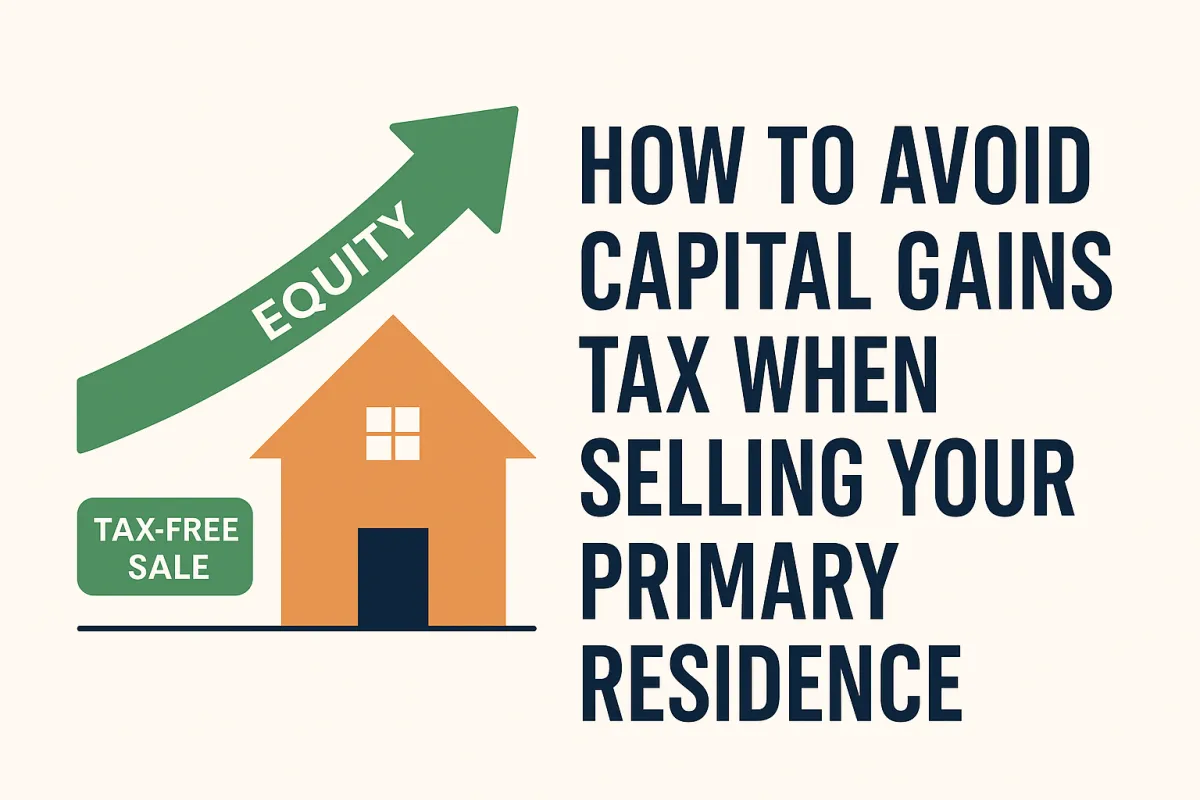
How to Avoid Capital Gains Tax When Selling Your Home
How to Avoid Capital Gains Tax When Selling Your Primary Residence
Thinking about selling your home? Before you cash in on your equity, it’s important to understand how capital gains tax may affect your bottom line. The good news: If your home is your primary residence, you may be able to avoid paying capital gains tax entirely—if you meet certain IRS requirements.
Let’s break down how capital gains tax works and the qualifications you must meet to exclude up to $250,000 (or $500,000 for married couples) from taxation.
What Is Capital Gains Tax on Real Estate?
When you sell an asset like real estate for more than you paid for it, the IRS considers the profit a capital gain, which can be subject to tax. However, the IRS Section 121 Exclusion allows homeowners to exclude a portion of the gain from taxation when selling a primary residence, as long as they meet certain conditions.
Capital Gains Tax Exemption for Home Sellers
If you qualify, you can exclude:
Up to $250,000 in profit if you’re single
Up to $500,000 in profit if you’re married filing jointly
This means you won’t owe any federal capital gains tax on that amount—even if your home increased significantly in value.
Key Qualifications to Avoid Capital Gains Tax
To qualify for the capital gains exclusion on the sale of your primary residence, you must meet these three main criteria:
1. Ownership Test
You must have owned the home for at least two years during the five years before the sale.
2. Use Test
You must have lived in the home as your primary residence for at least two of the past five years before the sale.
✅ The two years do not have to be consecutive—but they must add up to 24 months of primary residence use.
3. No Recent Exclusions
You must not have claimed the capital gains tax exclusion on another home within the two years before this sale.
What If You Don’t Meet the Full Requirements?
In some cases, you may still qualify for a partial exclusion of capital gains if you sold the home due to:
A change in employment
Health reasons
Unforeseen circumstances (like divorce or a death in the family)
The IRS allows prorated exclusions in these situations, based on how long you lived in the home.
Example: Avoiding Capital Gains Tax
Let’s say you’re a married couple who bought a home in Boynton Beach for $400,000 and sell it five years later for $950,000. You’ve lived there the entire time. Your profit is $550,000. Under IRS rules:
You can exclude up to $500,000 of the gain.
You would only pay capital gains tax on the remaining $50,000, if any.
How to Prepare for a Tax-Free Home Sale
To ensure you qualify for the exclusion and to maximize your profit, keep these tips in mind:
Maintain records of your purchase price, improvements, and closing costs.
Document your time of residence (utility bills, voter registration, driver’s license address, etc.).
Talk to a qualified real estate agent who understands the tax implications of home sales.
Final Thoughts
Selling your home can be one of the most profitable transactions of your life—and if you plan wisely, you may not owe a penny in capital gains tax. Understanding the IRS rules for primary residence sales is key to keeping more of your money in your pocket.
If you're considering selling your home in Palm Beach County, the Billy Howell Team at Your Home Sold Guaranteed Realty is here to help you navigate every step—including tax implications. Reach out today to see what your home is worth and how much you could keep tax-free.
🏡 Ready to Sell?
Get a Free Home Evaluation and discover your home’s value today.
